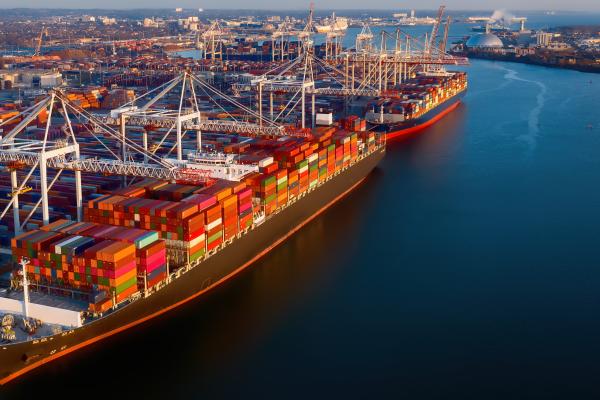
Angeliki Panera
Published: March 13, 2025
In the case of Bunge S.A. v Pan Ocean Co., Ltd. (The “Sagar Ratan”) [2025] EWHC 193 (Admiralty), the English High Court held that a port is not an “Affected Area” within the meaning of the BIMCO Infectious or Contagious Diseases Clause for Time Charter Parties 2015, by virtue of exposing a vessel to quarantine or other measures, where the risk of such quarantine or measures arises from a characteristic of the vessel or crew, not a characteristic of the place to which charterers ordered the vessel to proceed.
Background and Award
The “Sagar Ratan” was chartered by Owners, Bunge S.A., to Charterers, Pan Ocean Co. Ltd, on an amended NYPE form for one time charter trip from the Philippines via Australia to China with a cargo of alumina in bulk. On arrival at Bayuquan, China, members of the crew tested positive for COVID-19. The authorities imposed a 14-day quarantine on the Vessel, but Owners decided instead to sail to Ulsan, South Korea, and there replace the crew. The Vessel then returned to Bayuquan to discharge Charterers’ cargo.
The LMAA tribunal concluded that the Vessel was off-hire from the time the crew tested positive and during the time the Vessel sailed to Ulsan and performed the crew change. Clause 38 of the charterparty provided that the Vessel would be off-hire during a “detention… for quarantine due to… illness… of Master, officers and crew”, and Clause 50 provided that hire would be suspended “[i]n the event of loss of time… by reason of… sickness or accident to the Master, officers, crew”.
The tribunal also concluded that Owners could not rely on the (amended) BIMCO Infectious or Contagious Diseases Clause for Time Charter Parties 2015 (the “BIMCO Clause”) in the charterparty. The BIMCO Clause provided that an “”Affected Area” means any port or place where there is… a risk of quarantine or other restrictions being imposed in connection with the Disease”, and that “any additional costs, expenses or liabilities whatsoever arising out of the Vesel visiting or having visited an Affected Area… shall be for Charterers’ account and the Vessel shall remain on hire throughout”.
In particular, the tribunal found that the Vessel would not have been at risk of being subjected to quarantine if the crew members had not tested positive, and there was nothing to suggest that (in the absence of positive tests) the Vessel would have been subject to delays, other than normal operational ones.
High Court Decision
Owners appealed to the English High Court. The issues considered included:
the meaning of “Affected Area” in the BIMCO Clause,
causation under the BIMCO Clause,
whether there was “detention… for quarantine” for the purposes of Clause 38 (where the Vessel was able to sail and to avoid quarantine by replacing the crew), and
whether the crew change was the service immediately required of the Vessel.
Mr Justice Henshaw decided all four issues in Charterer’s favour and dismissed Owners’ appeal:-
Bayuquan was not an “Affected Area” because the risk of quarantine being imposed did not arise out of a characteristic of the port or place itself, such as the policies or other measures introduced by the port itself in response to COVID-19 in general (e.g., a blanket quarantine requirements of the port), but rather because the Vessel arrived with infected crew. Even if Bayuquan had been an “Affected Area”, Owners could not rely on the BIMCO Clause where the quarantine was not caused by the Vessel having visited Bayuquan.
In relation to Clause 38, it was held that detention is not confined to situations where the Vessel’s movement is prevented but could extend to other circumstances which impede “the core venture” of a charterparty. It was further held that a quarantine should be interpreted as covering a restriction which prevents the Vessel from entering the port, even if the Vessel is not physically confined. As such the vessel was off-hire.
As for Clause 50, it was held that the Vessel was not performing the service immediately required, which was discharge. Crew illness which results in quarantine did not amount “in the ordinary way [to] an activity required by a time charterer” (The Berge Sund [1993] 2 Lloyd's Rep. 453).
Comment
Following all the speculation around responsibility for delays to vessels caused by the multitude of quarantine measures implemented (to varying degrees) by countries during COVID-19 this decision is one of the first (published) that provides welcome clarity on the interpretation of the BIMCO Clause. The decision is also a reminder that courts have regard to the terms of the charterparty as a whole, and recognises the broad but useful distinction made in earlier cases between “matters which lie upon the owners’ side of responsibility, essentially the vessel and crew… and those matters relating to the charterers’ employment of the vessel and crew’ (The Doric Pride [2006] Lloyd’s Rep. 175 at [33]).




